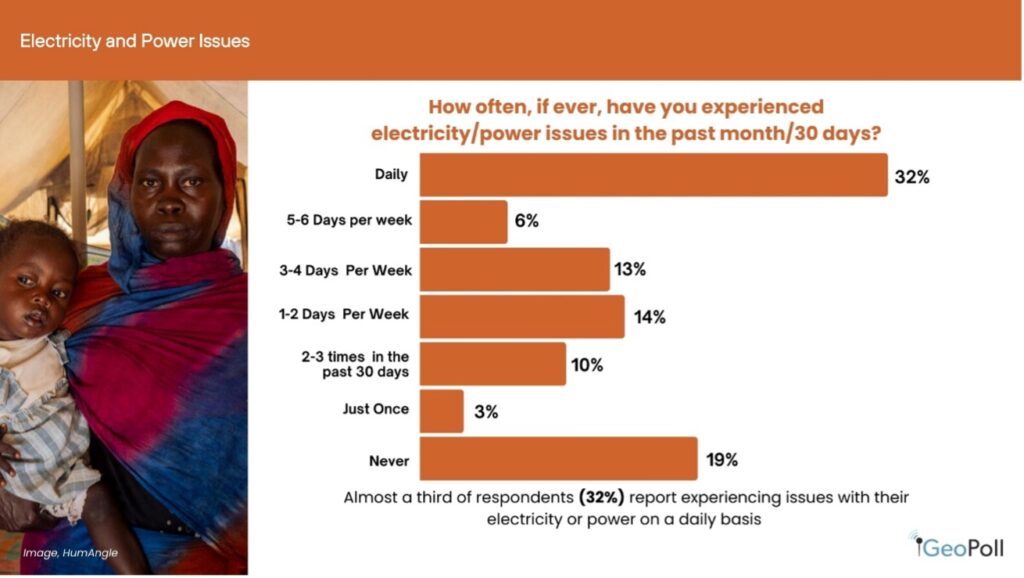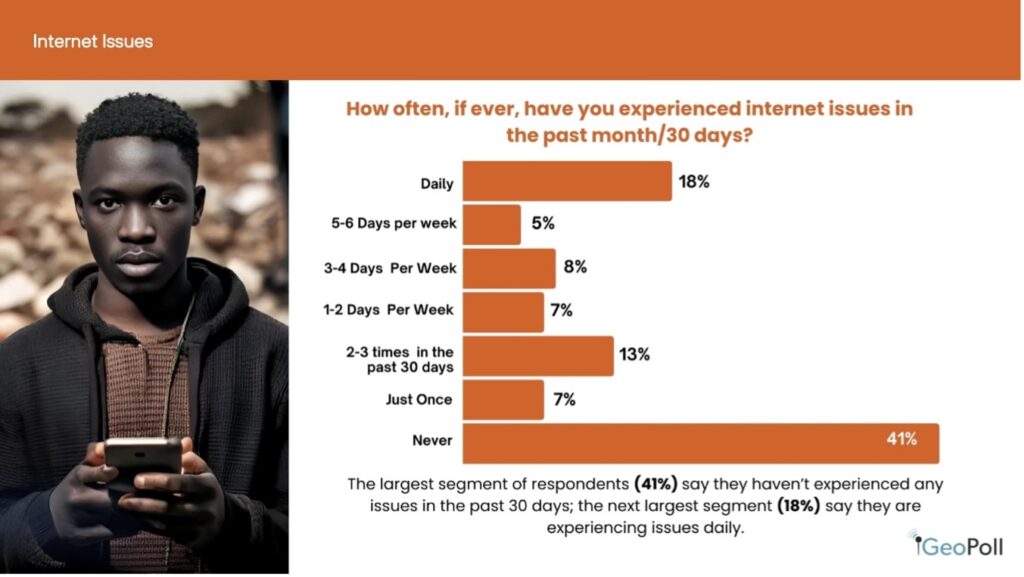The continuing civil struggle in Sudan has left almost 30 million folks in determined want of humanitarian help. The violence has pushed greater than 14 million folks from their properties and unleashed the world’s worst starvation disaster. With no finish to the battle in sight, and the necessity for help escalating quickly, GeoPoll performed a pilot survey in Sudan in October 2024. The target of the survey was to evaluate and optimize GeoPoll’s distant knowledge assortment capabilities within the nation to help within the concentrating on of humanitarian aid.
GeoPoll performed the survey utilizing its proprietary Pc Assisted Phone Interviewing (CATI) utility. Information assortment occurred from 3-30 October 2024. The stay name survey was supplied in Sudanese Arabic, and performed remotely from the GeoPoll name centre in Nairobi, Kenya concentrating on respondents dwelling in Sudan. The whole pattern measurement was 471 respondents. The undertaking’s pattern comprised a mixture of GeoPoll’s current Sudan database (51 completes), a GeoPoll associate database (19 completes), and Random Digit Dialing (401 completes). GeoPoll makes use of its intensive data of phone samples to intelligently generate RDD pattern that has response charges consistent with these discovered from the GeoPoll respondent database.
Demographics
Though the research was not purely scientific as there have been no strict measures to restrict demographic quotas, a various mixture of demographics was achieved.
Whereas the survey reached respondents in 15 out of the 18 states in Sudan, intense preventing within the western area of the nation, together with the burning of at the very least 68 villages in Darfur, restricted or prevented participation from these areas.
Entry to Important Providers
In instances of disaster, entry to energy and communication are essential. In our research, nearly a 3rd of respondents (32%) report experiencing points with their electrical energy or energy each day previously month. Most (65%) report experiencing points at the very least a few times per week.

Communication infrastructure, together with web and cellphone, appears to be fairing barely higher – at the very least for these respondents that had been capable of join on their telephones to reply to our survey. Most respondents are nonetheless experiencing at the very least some interruptions, nevertheless.
By way of the web, whereas the biggest phase of respondents (41%) say they haven’t skilled any points previously 30 days, the following largest phase (18%) say they’re experiencing points every day.

Cellphones have develop into important instruments for communities in disaster. With cell connectivity, civilians can keep in contact with family and friends, entry up-to-date data, join with humanitarian services, and way more. In our research 48% of respondents haven’t skilled any cell community outages previously 30 days, and 11% have simply skilled one outage.

Protecting communication strains open because the preventing continues will play a significant position in each the concentrating on and distribution of humanitarian aid.

Conduct CATI Analysis in Sudan
GeoPoll has intensive expertise conducting analysis in areas of battle and disaster by way of distant mobile-based methodologies. In instances when it’s in any other case inconceivable to get data from folks on the bottom, distant knowledge assortment can play a pivotal position in capturing the sentiment and realities of weak populations.
For this research, educated interviewers on the GeoPoll name centre in Nairobi, Kenya made 24,588 distinctive calls to residents throughout Sudan. The phone pattern was randomly generated and dialed through the GeoPoll CATI utility. The whole variety of calls made yielded roughly 15,331 opt-ins to the survey for an preliminary response charge of 62%. Of those that opted-in, 22 had been deemed ineligible as a consequence of age and/or location. Of these eligible, 14,908 dropped off in some unspecified time in the future within the survey, leading to a complete of 401 completes from the RDD pattern for a whole completion charge of 1.6%.
Based mostly on the findings from this research, we realized and carried out a number of techniques to optimize response charges and guarantee high quality when conducting CATI analysis in Sudan:
- As a result of most respondents in our research report experiencing intermittent energy, web, and cell community outages, it’s endorsed to make a number of calls to every respondent (if wanted) at totally different instances of the day and days of the week.
- Though there isn’t any important variation in the popular time of day for respondents to be contacted, experimenting with totally different name instances would possibly nonetheless assist determine optimum intervals for larger response charges.
- Equally, contacting respondents at totally different days of the week doesn’t seem to considerably affect response charges, thus survey efforts might be unfold evenly all through the week.
- Snowballing methodology ought to be explored as 50% of the respondents confirmed having numbers of household and associates that could be keen to take part. Out of those, 61% shared contacts.
- Implementing the survey remotely from our name centre in Nairobi ensured a protected and steady working surroundings for the interviewers to make their calls.
- For calls constituted of inside Sudan, it might be advantageous to make the most of a number of workplaces and areas, in order that if one group is disrupted, different groups can proceed making calls.
To be taught extra about GeoPoll’s capabilities in Sudan and world wide, please contact us.












